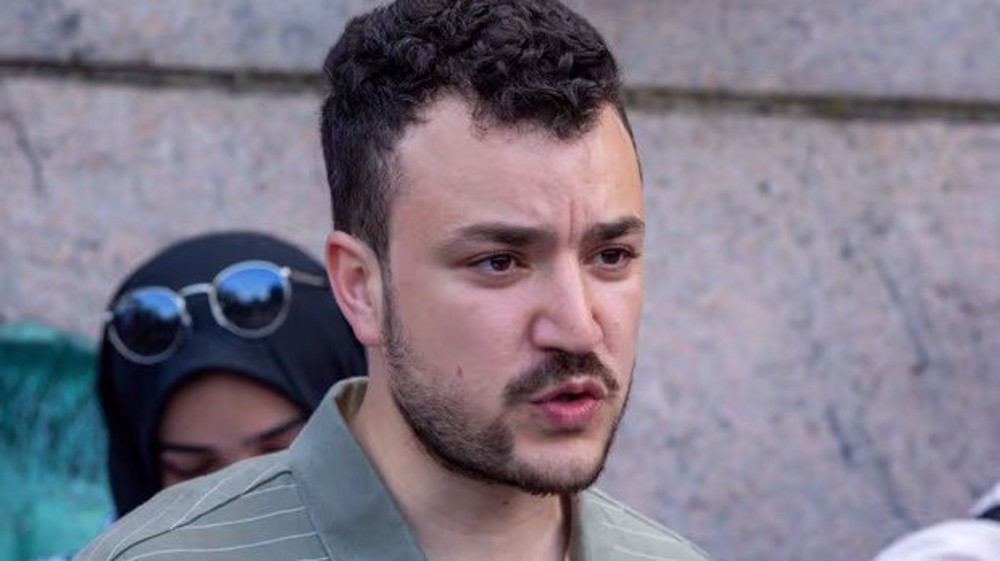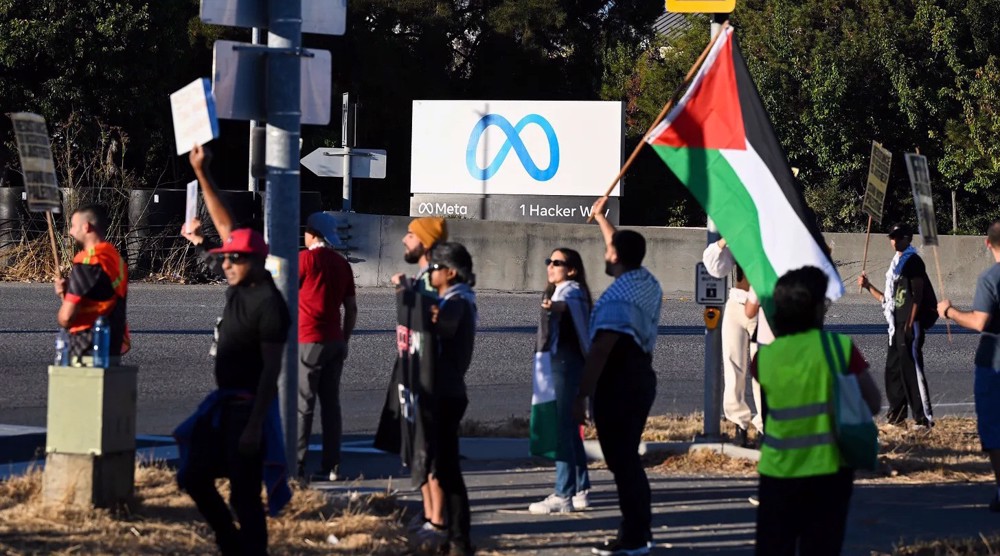Palestinians urge ‘week of rage’ as Israel plans to force-feed hunger strikers
Leaders of a mass hunger strike by Palestinian prisoners have called for a “week of rage” against Israel amid reports that Tel Aviv plans to bring in foreign doctors to force-feed the inmates refusing to eat.
"Our people should unleash their anger and clash uninterruptedly with the Israeli occupation at seam zones," the prisoners' leadership said in a statement released on Saturday, referring to the zones around the controversial separation wall, where Palestinians are not permitted to enter.
The statement also called on Palestinians to "blockade Israeli embassies all over the world and continue to organize rallies and sit-ins and to crowd in sit-in tents in Palestinian cities and villages.”
"Any attempt to force-feed any hunger-striking prisoner will be treated as an attempt to execute prisoners. We will turn these prisons into battle fields with our bodies, armed with our will and determination," the statement read.
On Thursday, Israel’s Channel 2 broadcaster reported that Tel Aviv sought to bring in foreign doctors to force-feed Palestinian hunger strikers because its own medical association has banned the inhumane practice.
The head of the Palestinian Committee of Prisoners' Affairs, Issa Qaraqe, warned that the doctors “of any nationality” who performed force-feeding would be legally pursued.
Force-feeding is a crime and jeopardizes the lives of prisoners and violates international laws and ethics, he added.
In a statement emailed to American news magazine Newsweek, Arab Israeli lawmaker Ahmad Tibi at the Israeli parliament condemned the idea of using foreign doctors to force-feed the hunger strikers as “an immoral manipulation aimed at bypassing the Israel Medical Association’s” ban.
“The very idea is horrible and disgraceful, and the human demands of the prisoners should be met instead of conducting a dirty struggle against them,” he said.

The open-ended mass hunger strike, dubbed the Freedom and Dignity Strike, began on April 17 to denounce harsh conditions in Israeli jails. It is led by a jailed leader of the Fatah movement, Marwan Barghouti.
The strike initially began with 1,500 prisoners, but now, in its 20th day, about 2,000 Palestinians are believed to be refusing food.
Earlier this week, the Arab League urged the United Nations to launch a probe into the violation of Palestinian prisoners’ rights in Israeli jails.
Read more:
Some 6,500 Palestinians are currently being held in Israeli jails, 536 of them arbitrarily, according to figures provided by the Palestinian prisoners’ rights group Addameer in January.
Palestinian inmates complain that they have been subjected to assault and torture at Israeli prisons.
They have continuously resorted to hunger strikes in an attempt to voice their anger at the so-called administrative detention, which is a form of imprisonment without trial or charge that allows Israel to incarcerate Palestinians for up to six months.

US judge rules for Mahmoud Khalil’s deportation over his pro-Palestinian views

Leaked docs. expose Israeli censorship campaign to erase pro-Palestinian content online

Leaked emails show German officials pressing staff into deporting pro-Palestine activists
VIDEO | German Muslims forced to pray on streets due to forced closure of mosque
VIDEO | New tragedy unfolds in Rafah as Israeli regime expands ground attacks in Gaza
VIDEO | 14 million youths in EU have poor mental health
VIDEO | Syrian protesters condemn Israeli aggression in Gaza
US judge rules for Mahmoud Khalil’s deportation over his pro-Palestinian views
VIDEO | Massive Friday protests in Yemen: Call for end to US, Israeli aggressions
Leaked docs. expose Israeli censorship campaign to erase pro-Palestinian content online
Yemen targets Israeli military sites in Jaffa in retaliation for Israel’s Gaza genocide







 This makes it easy to access the Press TV website
This makes it easy to access the Press TV website